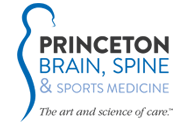Leptomeningeal Carcinomatosis
Leptomeningeal Carcinomatosis
General Overview & Treatment
Leptomeningeal carcinomatosis (LC) occurs when cancer cells enter the cerebrospinal fluid and spread quickly throughout the nervous system. Once considered a rare complication of cancer or cancer relapse, the disorder is now more frequently identified since cancer patients are living longer and diagnostics have improved. Leptomeningeal carcinomatosis is a complication found in approximately five percent of cancer cases. Most often, it occurs in patients with cancers that spread through the central nervous system, including breast cancer, lung cancer and melanoma.
Leptomeningeal Carcinomatosis Treatment Options
Treatment for leptomeningeal carcinomatosis consists of interventions that stabilize neurological symptoms and help to prolong life. These may include:
- Improved protocols for early diagnosis in patients with a high likelihood of developing LC
- Radiation to shrink LC tumors
- Chemotherapy delivered into the central nervous system intrathecally (through a small hole drilled into the skull)
New Research Offers Hope
Leptomeningeal carcinomatosis’ increased incidence has led to more research into the composition of cerebrospinal fluid and LC tumors. With more knowledge of how the disease spreads in the nervous system, researchers hope to develop new, more effective treatments. In addition, early screening of patients at risk for the disease is improving detection before serious neurological damage occurs. With early intervention and stabilization, as well as more effective chemotherapy, there is hope for improved quality of life and increased chance of long-term survival.
Princeton Brain, Spine & Sports Medicine: Leaders in Advanced Neurosurgery
The neurosurgeons of Princeton Brain, Spine & Sports Medicine are fellowship trained in advanced treatments for spinal, cranial and neurological disorders. With access to state-of-the-art equipment and collaborative partnerships with reputable PA and NJ hospitals, PBSSM provides patients with leading-edge diagnosis and treatment for degenerative cervical conditions, brain tumors, neuralgias and stenosis.
Our breakthrough technology and pioneering surgical techniques are only part of our patient-centered care approach. The entire PBSSM staff treats you like family, making you feel comfortable and informed during times of critical health stress. Call 215.741.3141 in Pennsylvania or 609.921.9001 in New Jersey to schedule a consultation—or make an appointment using our contact form.
Request an Appointment
Submit an appointment request on our patient portal or contact our New Jersey and Pennsylvania campuses to speak with a patient advocate.
